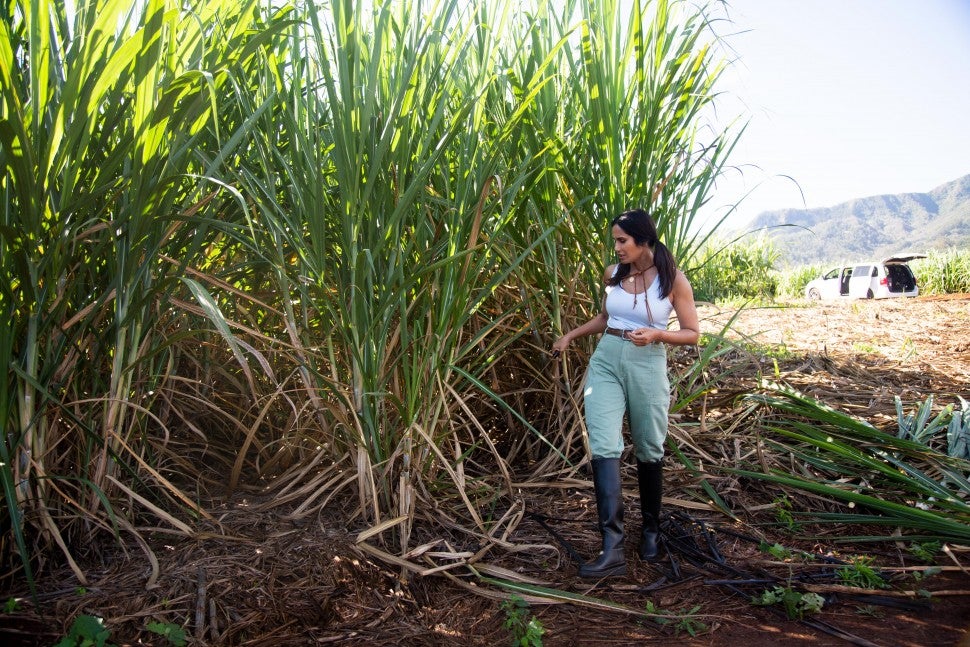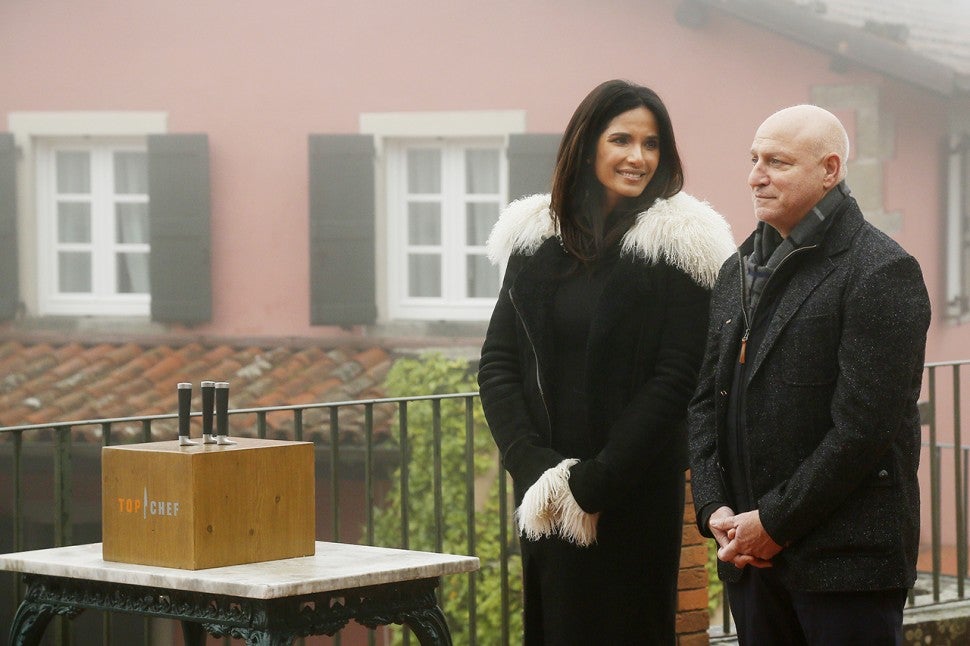Padma Lakshmi is no stranger to speaking her mind. As the Emmy-nominated host of Top Chef, Bravo’s reality food competition, which is now in its 17th season, she’s guided viewers through quick fires and elimination challenges all the while letting everyone know just what she thinks of the contestants’ various dishes. Now she’s stepping out on her own with her timely new Hulu series, Taste the Nation, which explores immigrant food cultures across the country and what defines American cuisine.
Now streaming on the platform, Taste the Nation is the direct result of Lakshmi’s own experiences as an immigrant growing up in America and her ongoing work with the American Civil Liberties Union after she became an Artist Ambassador for immigrants’ rights and women’s rights flowing the 2016 presidential election. With the series, she wanted to show the larger American public what it’s like to be an immigrant in this country.
Recommended Videos
“I also wanted to travel the country. I wanted to see on the ground, what does it mean to be American? Who gets to decide that? What is American food actually?” she explains. “It seemed to me, we were willing to embrace immigrant food and make it our own, but yet we were still unwilling to embrace the people that made that food. And that to me seems super hypocritical.”
Taking advantage of her own platform, she saw the series as an opportunity to entertain as well as inform. “Because I was convinced that if I could just make the bigger American TV public aware of what it was like on the ground for these people in their daily life, that it would show them that their humanity was no lesser than [anybody else’s],” she says.
The end result is a stylish and entertaining 10-part series that echoes Chef’s Table and Ugly Delicious as Lakshmi visiting various parts of the country, like El Paso, Texas, where she eats her way through the border city’s authentic Mexican cuisines; South Carolina, to learn about the hundreds of years of tradition passed down through the Gullah Geechee people (this episode, “The Gullah Way,” is currently streaming for free); San Francisco, California, to discover the true meaning behind the creation of chop suey and how Chinese food is perceived today; and Arizona, where she tastes the original American cuisine that is indigenous to this land.
Her exploration of various cultures around the country also sees her experiencing firsthand how they cultivate their food, often leading to new adventures for the food personality. “I'd never been to a Native American reservation. I'd never forged for my own meal. I certainly have never eaten a rodent. I'd never gone snorkeling like that in the ocean,” she says, with the last comment referring to the finale when she learns about the Japanese culture of Hawaii.
Not only does Lakshmi shine a much-needed light on various immigrant food cultures in the U.S., but she also turns the camera on herself and her family’s experiences as immigrants and how they relate to America through food. The episode, “Don’t Mind If I Dosa,” even opens with a candid conversation between her and her 10-year-old daughter, Krishna, who is biracial, about whether she prefers pancakes or dosas. Spoiler: she likes pancakes better. “I didn’t know what Krishna was going to say when I asked her if she liked one versus another,” Lakshmi says. “Obviously, there was a little stab of pain in my heart, but it's hard to compete with sugar.”
The moment, however, lends itself to exactly what Lakshmi is exploring on the show, the idea of what it means to be American, what defines American cuisine, and how people identify with those concepts. But those are the kinds of questions she asks herself as a mother every day of her life when it comes to her daughter.
“I don’t want to put pressure on her to be what my version of Indian in America is. I want her to find her own way to her identity,” Lakshmi says, while acknowledging that every now and then she pushes her daughter to try certain Indian cuisines, like dal, “and she didn’t want to eat it,” she adds with a laugh. But the point is, she says, is that “every generation picks and chooses, eventually when they're able to, what they want out of their culture.”

Ultimately, that episode was a conscientious effort on Lakshmi’s part to be as honest about her own family, as she was asking all her guests on every other episode to be about their family and their culture. “I had to go that deep because it was only fair,” she says.
Meanwhile, as Taste the Nation makes its debut on Hulu, it comes as Top Chef, which is co-hosted by Tom Colicchio, closes out another season. Debuting at the onset of the coronavirus outbreak that forced people across the country to shelter in place and left the restaurant and food industry reeling from no longer having regular dining service, All-Stars L.A. took on new resonance and suddenly felt as relevant and as vital as ever. An early episode saw the returning favorites exploring Los Angeles restaurants that have since been closed amid the pandemic and the finale sees the remaining few competing in Italy, which was ravaged early on by the spread of COVID-19.
“It feels like a lifetime ago,” Lakshmi says of filming season 17 last fall in between shoots for Taste the Nation. Watching the series back now makes her feel very nostalgic. “It gives me hunger pains for travel because I’ve always been a nomad and I love to travel. When people ask me what I do, you know, obviously I'm not a chef. I say, I’m a food writer or I'm a culinary spelunker. And it's hard to spelunk when you're confined to your own backyard.”

When season 17 ends, it may be the last audiences get for a while, with TV productions slowly starting to resume this summer. Lakshmi says they’re actively discussing what the future of the series looks like amid new precautions required to safely film again. “We’ll have to retool the show, both for the protection of my crew and cast, but also to set a good example. You probably won't see me and Tom sharing a plate of food,” she says, adding that the challenges will be informed by what food is available and how they can prepare it in close proximity to each other.
Lakshmi also acknowledges that Top Chef will have to take into account how the food and restaurant industry has changed amid the pandemic and how the ongoing protests against systemic racism in America is revealing flaws in every industry, including one the series celebrates. “We do want to address the current situation in the restaurant industry. Our show is based on those restaurants. We built Top Chef off the backs of professional chefs and their establishments,” she says, adding that it would be unconscionable not to address ongoing concerns.
“We're also talking about how to make sure that we have greater diversity,” she continues, lamenting that the restaurant industry is very white, male dominated. “It’s just trying to look at the situation with fresh eyes because where we are demands it.”
RELATED CONTENT:
'Top Chef' Sneak Peek: Ali Wong and Randall Park Put the Contestants to the Test
Padma Lakshmi Gushes Over How 'Humbling' It Is to Be a Mom (Exclusive)
Padma Lakshmi Shares Heartfelt Tribute to Late 'Top Chef' Star Fatima Ali



